Writing a referral recommendation letter can feel daunting, but it doesn't have to be. The key is to convey your confidence in the specialist's expertise while providing essential details about your patient's condition. It's an opportunity to ensure your patient receives the best care possible, and your insights can make all the difference. Join us as we explore a handy template that will guide you in crafting an effective referral letter.

Patient Information and History
A comprehensive patient referral recommendation is crucial for ensuring continuity of care and optimal treatment outcomes. The patient's name, age (e.g., 45 years), and contact information should be clearly stated. Notable medical history, such as chronic conditions like hypertension or diabetes, is vital for understanding the patient's overall health. Any previous treatments (e.g., surgeries or therapies) and response to these interventions should be documented meticulously. In addition, current medications, including dosages and frequency, need to be included to avoid potential drug interactions. Symptoms or concerns prompting the referral, such as persistent pain or severe fatigue, require detailed descriptions. Clear identification of the referrer, alongside rationale for the referral--like seeking specialized care in a specific field (e.g., cardiology or oncology)--enhances communication among healthcare providers and optimizes the patient's journey through the healthcare system.
Reason for Referral
Patient referral recommendations often stem from specific medical needs or concerns that require specialized attention. A common reason for referral might be the need for advanced diagnostic imaging such as MRI scans or CT scans to evaluate potential neurological disorders like Multiple Sclerosis or brain tumors. Another frequent reason involves the management of chronic conditions, such as uncontrolled diabetes, requiring the expertise of an endocrinologist to adjust medications or lifestyle interventions effectively. Additionally, mental health assessments may necessitate referral to a psychiatrist for thorough evaluation and treatment of conditions like severe depression or anxiety disorders. Overall, the referral process is crucial in ensuring comprehensive patient care and addressing complex medical issues.
Specialist or Facility Details
A comprehensive referral recommendation for a patient should include essential details about the specialist or facility involved in the process. If referring a patient to Dr. Emily Carter, a renowned cardiologist based at St. Mary's Medical Center, known for advanced cardiac imaging techniques and patient management, you might include her contact number (555-1234) and clinic address (123 Cardiology Lane, Springfield). Details about the facility's accreditation (Joint Commission certified) and specific services offered such as echocardiograms, stress tests, and comprehensive cardiovascular consultations enhance context. Additionally, providing referral-related information, like expected wait times, should also mention accompanying documentation requirements, such as previous medical evaluations or test results, to facilitate a smooth referral process.
Specific Medical Concerns or Symptoms
A patient referral for specific medical concerns, such as persistent abdominal pain, can lead to essential diagnostic evaluations. Chronic abdominal discomfort, often categorized into acute or chronic types, may necessitate investigations like endoscopy or imaging studies such as an MRI. Symptoms associated with gastrointestinal issues can range from bloating, which affects around 30% of individuals, to severe cramping that can disrupt daily activities. The healthcare provider should consider the patient's history, including recent events like weight loss or dietary changes, as these factors can provide crucial insights into underlying conditions such as irritable bowel syndrome or potential gastrointestinal malignancies. A timely referral to a gastroenterologist, an expert in digestive health, can facilitate specialized assessments and targeted treatment plans to address these significant health concerns effectively.
Contact Information and Confidentiality
Patient referral recommendations often require careful attention to detail to ensure proper communication and confidentiality. Contact information should include the referring provider's name, professional title, phone number, and email address. The recipient's information must be equally thorough, featuring the name of the specialist or facility, address, and contact details. Upholding patient confidentiality is paramount, necessitating the use of secure transmission methods. This includes encrypted emails or secure online platforms compliant with Health Insurance Portability and Accountability Act (HIPAA) regulations. Proper documentation ensures that personal health information remains protected while facilitating the necessary communication for patient care.

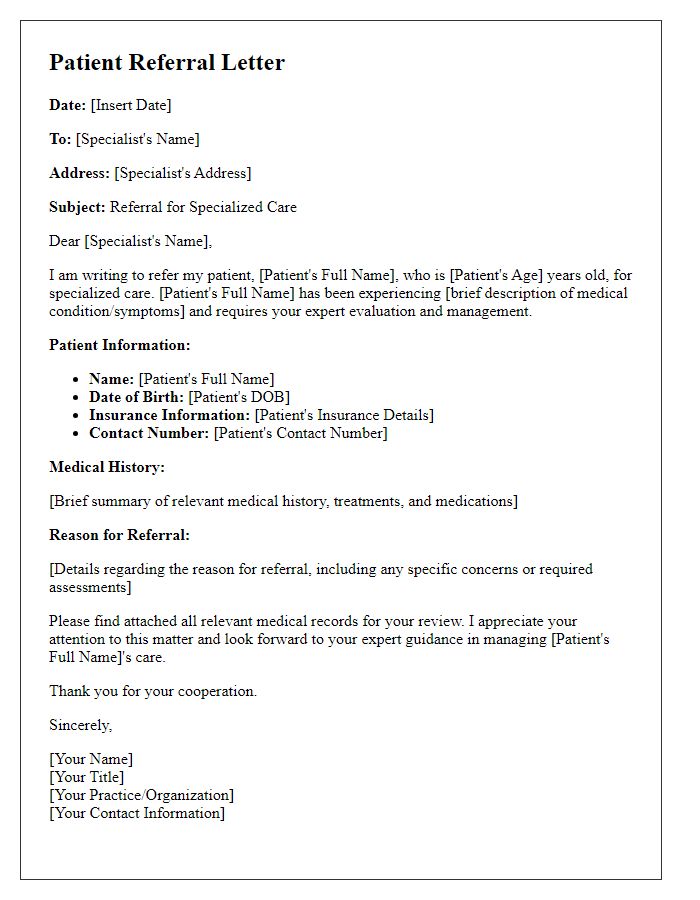
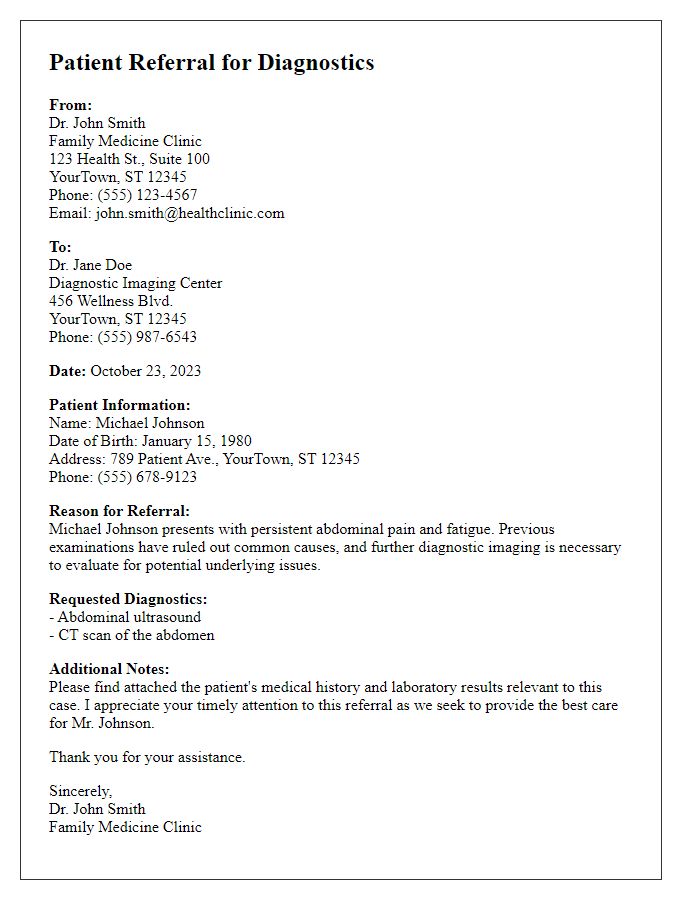
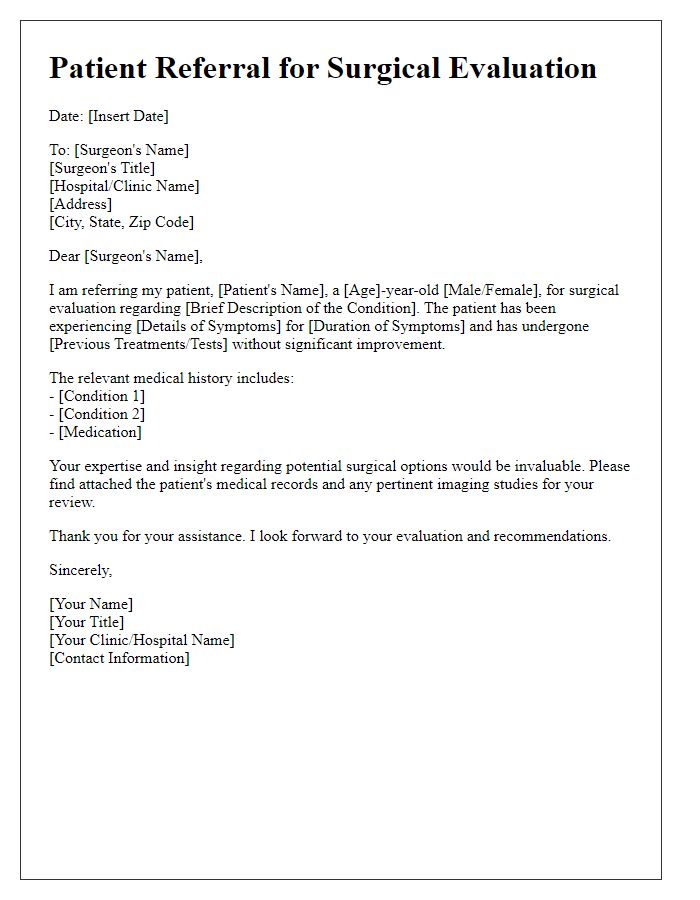
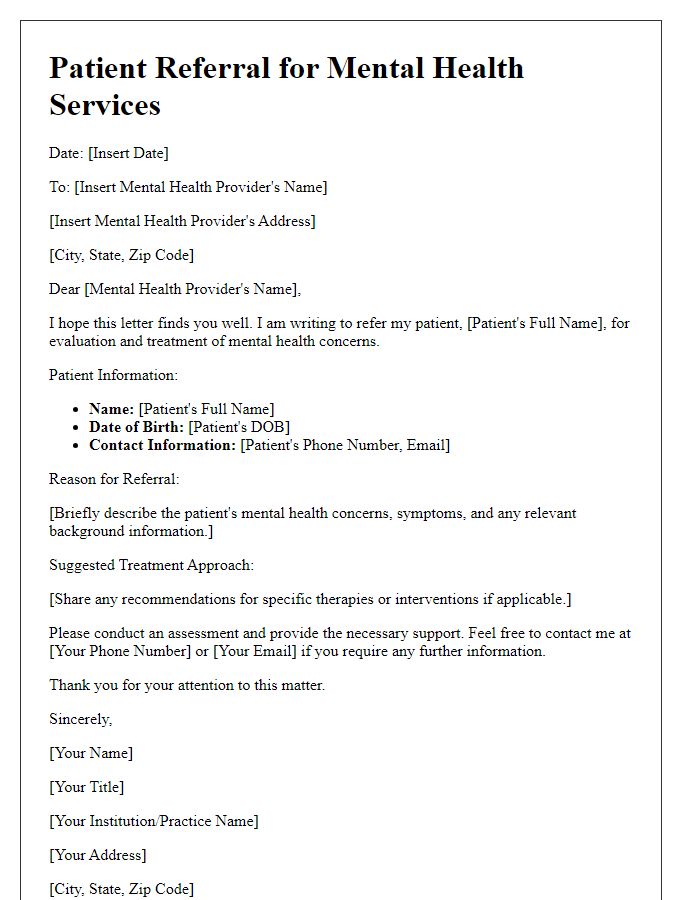
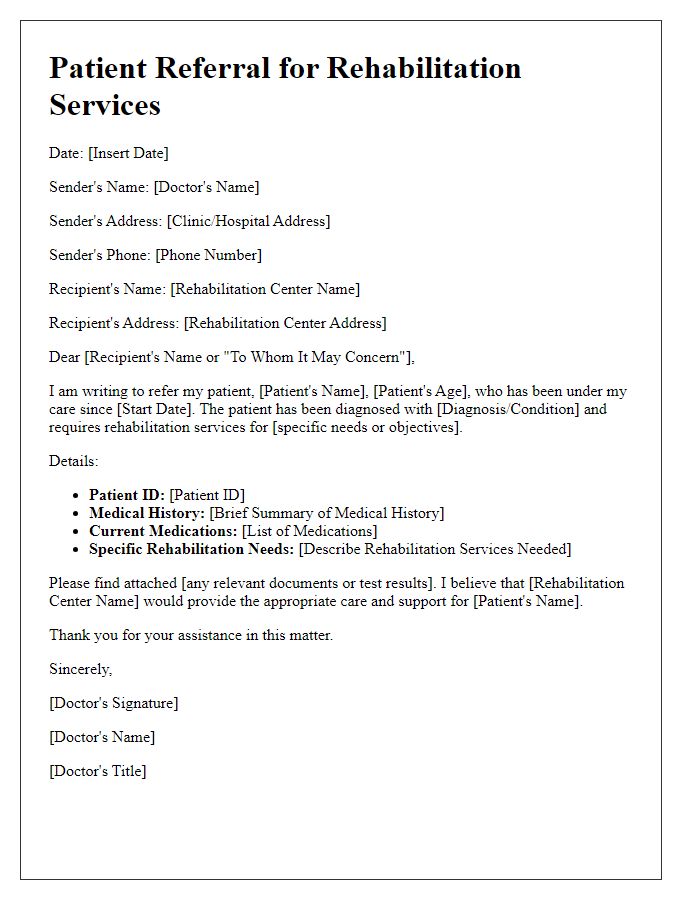
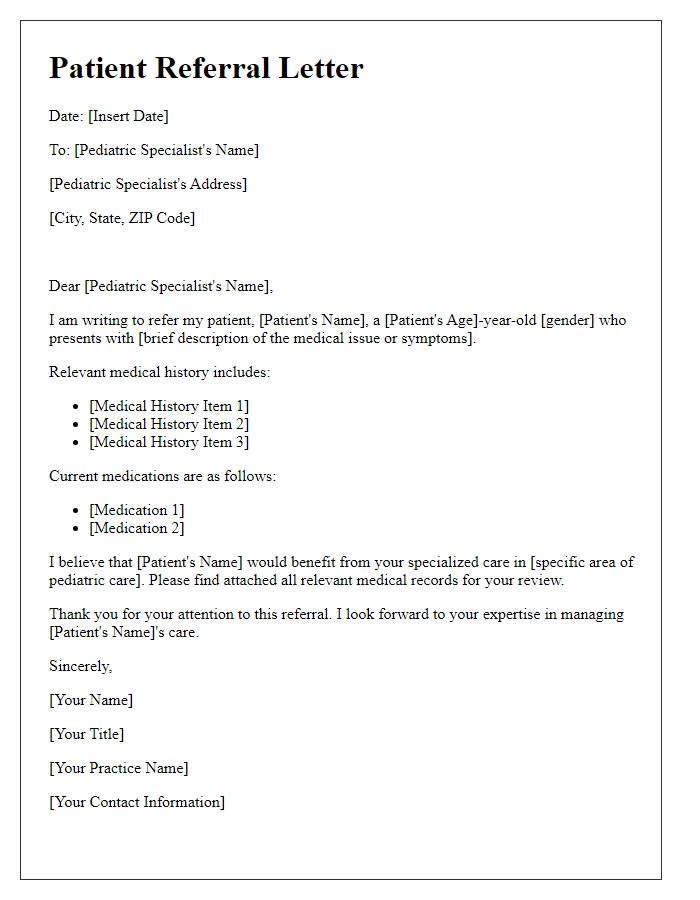
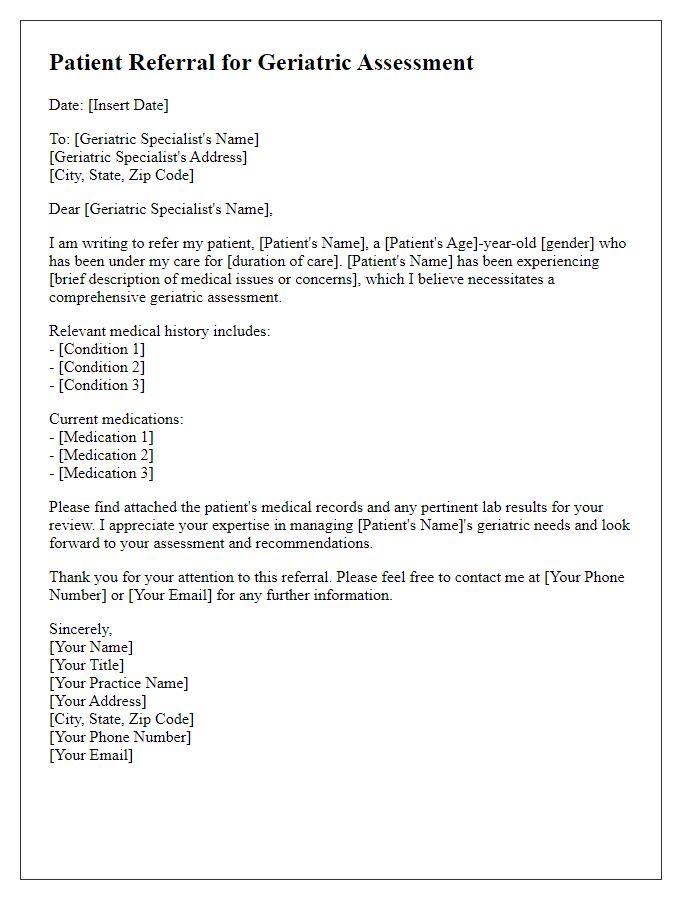
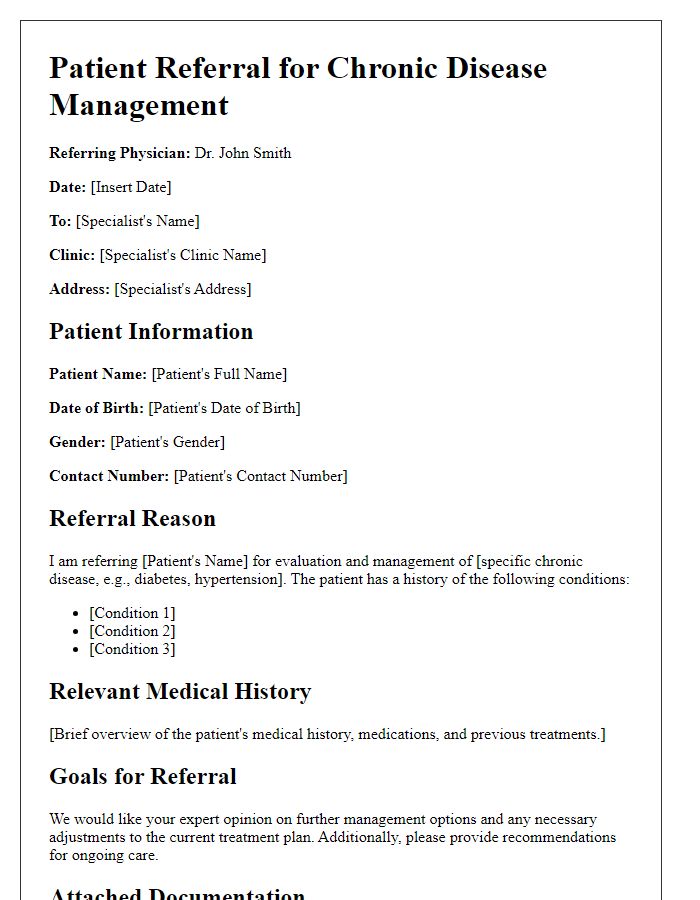
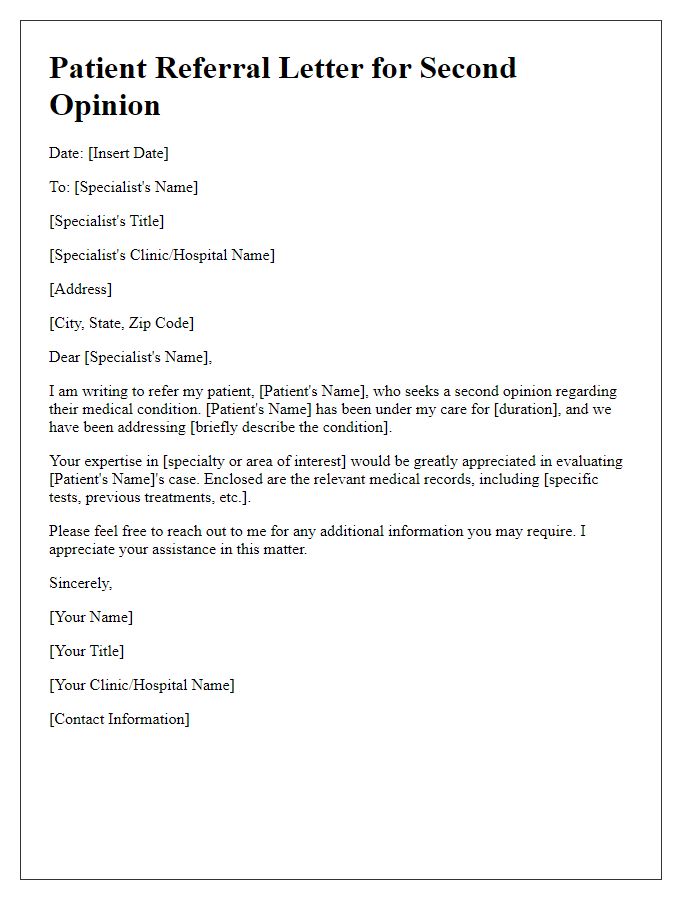
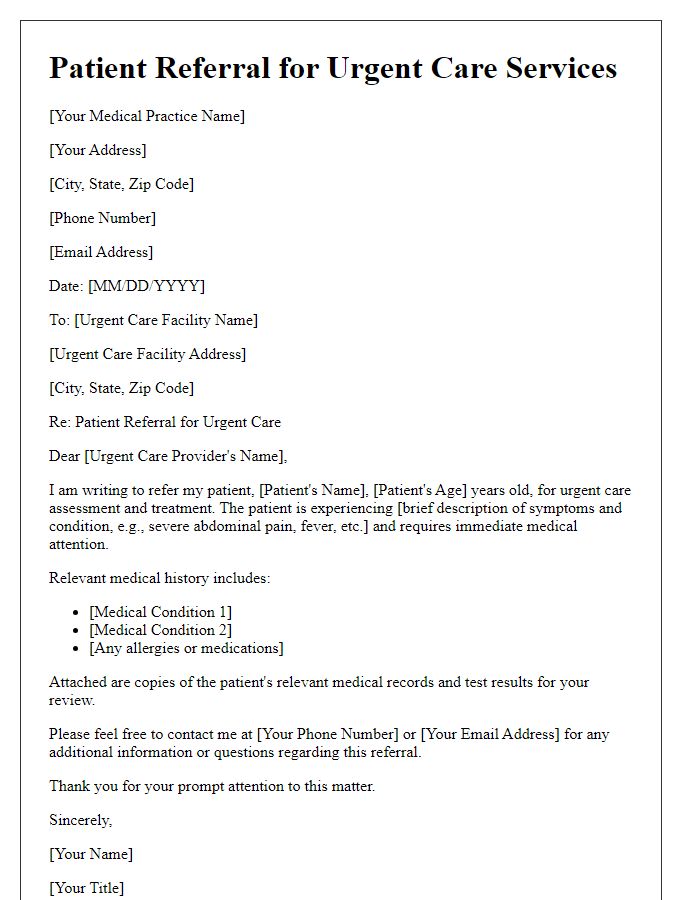


Comments